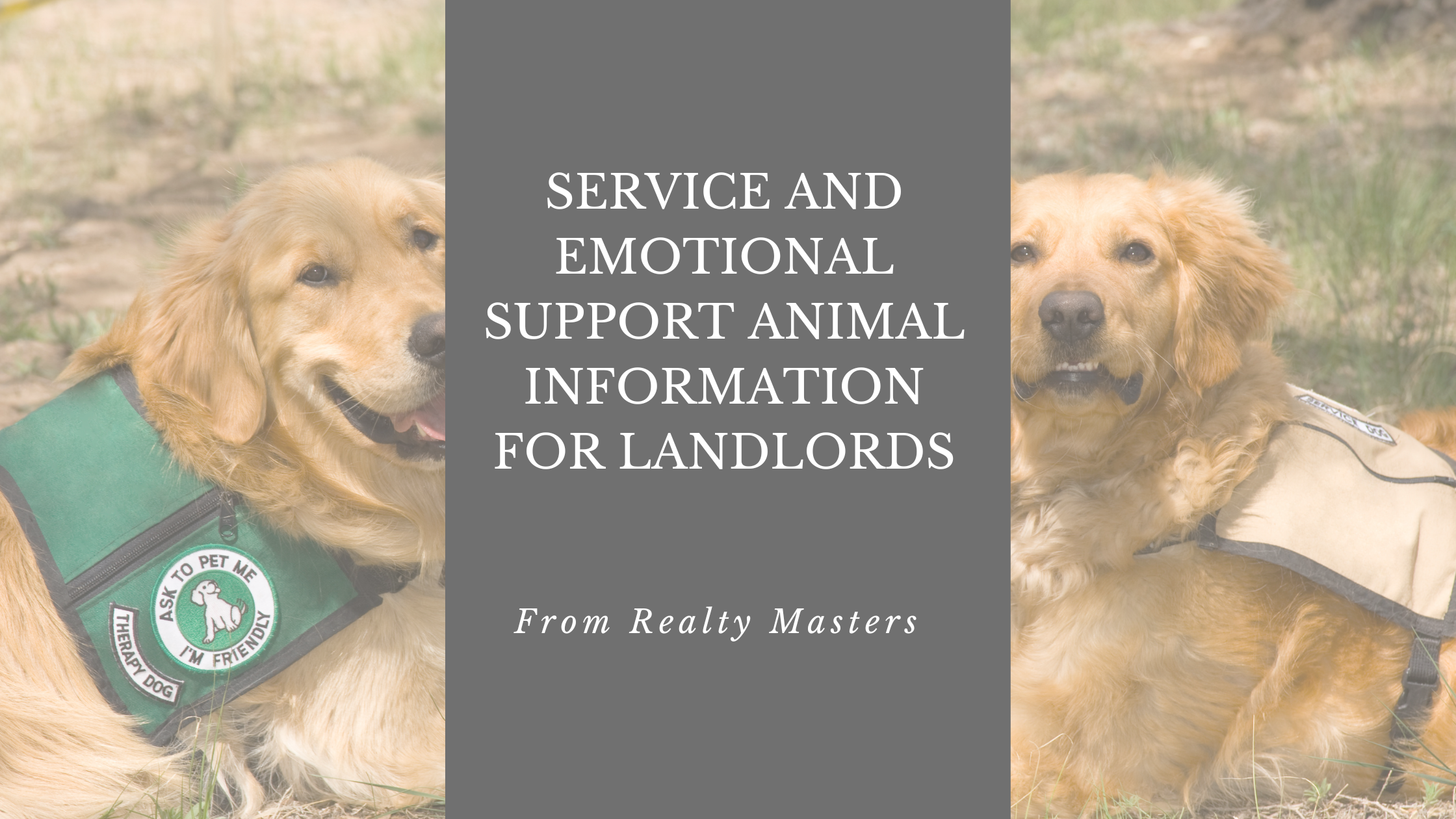If you’re a landlord, you may be confused about assistance animals. Here’s a rundown of what you need to know.
There are two types of assistance animals a resident may have in your property. These animals are regulated by both the Fair Housing Act and the Americans with Disability Act.
An assistance animal includes both service animals and emotional support animals. Both types of animals are seen as a reasonable request for accommodation if they meet the legal threshold. Housing providers must meet obligations under both the reasonable accommodation standard of the Fair Housing Act and the service animal provisions of the ADA.
A service animal is categorized by the ADA an animal trained to do a specific task for their owner. The most common example is a guide dog. The Americans with Disability Act (ADA) prohibits discrimination and ensures equal opportunity for persons with disabilities.
An emotional support animal can be a cat, dog or other type of companion animal, and does not need to be trained to perform a service according to the Fair Housing Act. The emotional and/or physical benefits from the animal living in the home are what qualify the animal as an emotional support animal. The Fair Housing Act (FHA) is a federal law that prevents discrimination against tenants in their homes. Under the FHA, a disability is defined as a physical or mental impairment which significantly limits a person’s major life activities.
As a property owner, you should find out if you are subject to the Fair Housing Act as in very limited situations, landlords are not subject to these guidelines. Licensed real estate agents and landlords with 4 or more properties are always subject to the Fair Housing Act.
Despite your preference to accept pets, a property owner cannot deny these animals in a residence. With proper documentation from your prospective tenant, we will accept an emotional support animal from your current or prospective tenant regardless of your pet preferences. Even if we advertise your property “no pets”, landlords are required to make what is called a reasonable accommodation/modification to allow animals in properties that serve as assistance animals including service animals and emotional support animals. Keep in mind, these animals are not pets and not subject to the owners approval to reside in the property, pet fees or pet rent.
They are, however, subject to good behavior and can be removed with proper legal action if the animal is causing damage the resident won’t cure. Under the laws, renters are still responsible for any damages caused by assistance animals. If the animal causes a nuisance while at the property, the landlord does have the right to remove the assistance animal and/or tenant through legal proceedings.
Service Animals and Emotional Support Animals are not pets and are in a different legal classification. They are animals that work, assist and/or perform tasks and services for the benefit of a person with a disability or provide emotional support that improves the symptoms of a disability.
If you’re looking for a Pensacola property manager, reach out to our team for more information. Realty Masters is the largest property management company in the Pensacola area, serving more property owners than any other, and we’re happy to answer any questions you may have about your Pensacola investment property.


